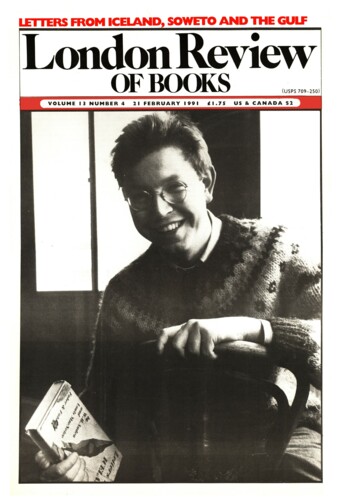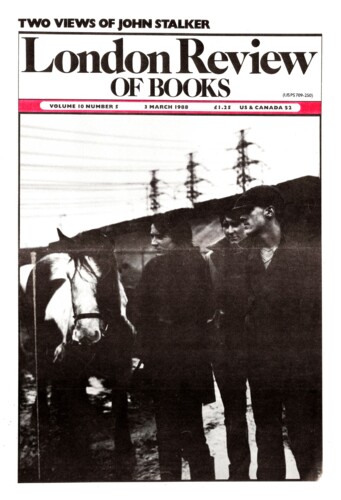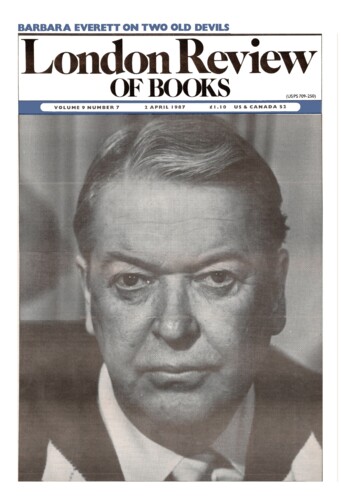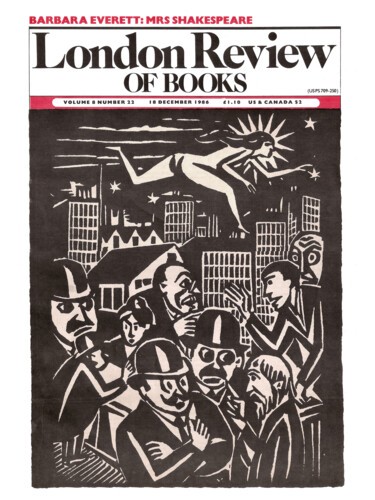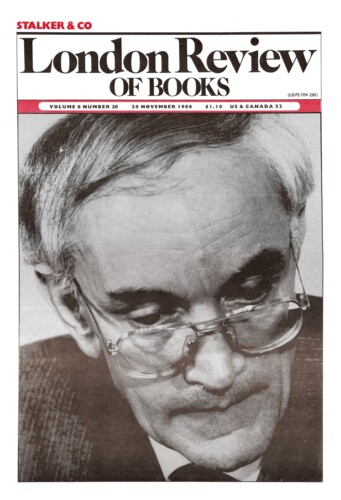Sex’n’Love
Blake Morrison, 21 February 1991
How much do love and sex have in common? Not enough, it seems, for them to appear together in anthologies, which increasingly cater either for the sentimental or the pornographic market. We need not be surprised by this. Men, at any rate, have often maintained that sexual intercourse may occur without any undue engagement of the emotions, just as love need not hinder the serious business of living and working and getting on. And nowadays a wing of the feminist movement wishes to make similar protestations of disengagement on behalf of women, who have paid a high price for emotional (and economic) servitude. Yet there is something peculiarly English and Victorian, something repressed rather than liberated, about wishing to separate the two, as if the ambiguities of words like ‘desire’ and ‘love-making’ did not exist.
